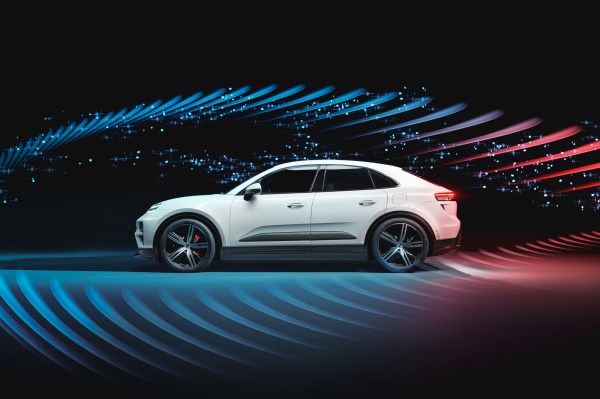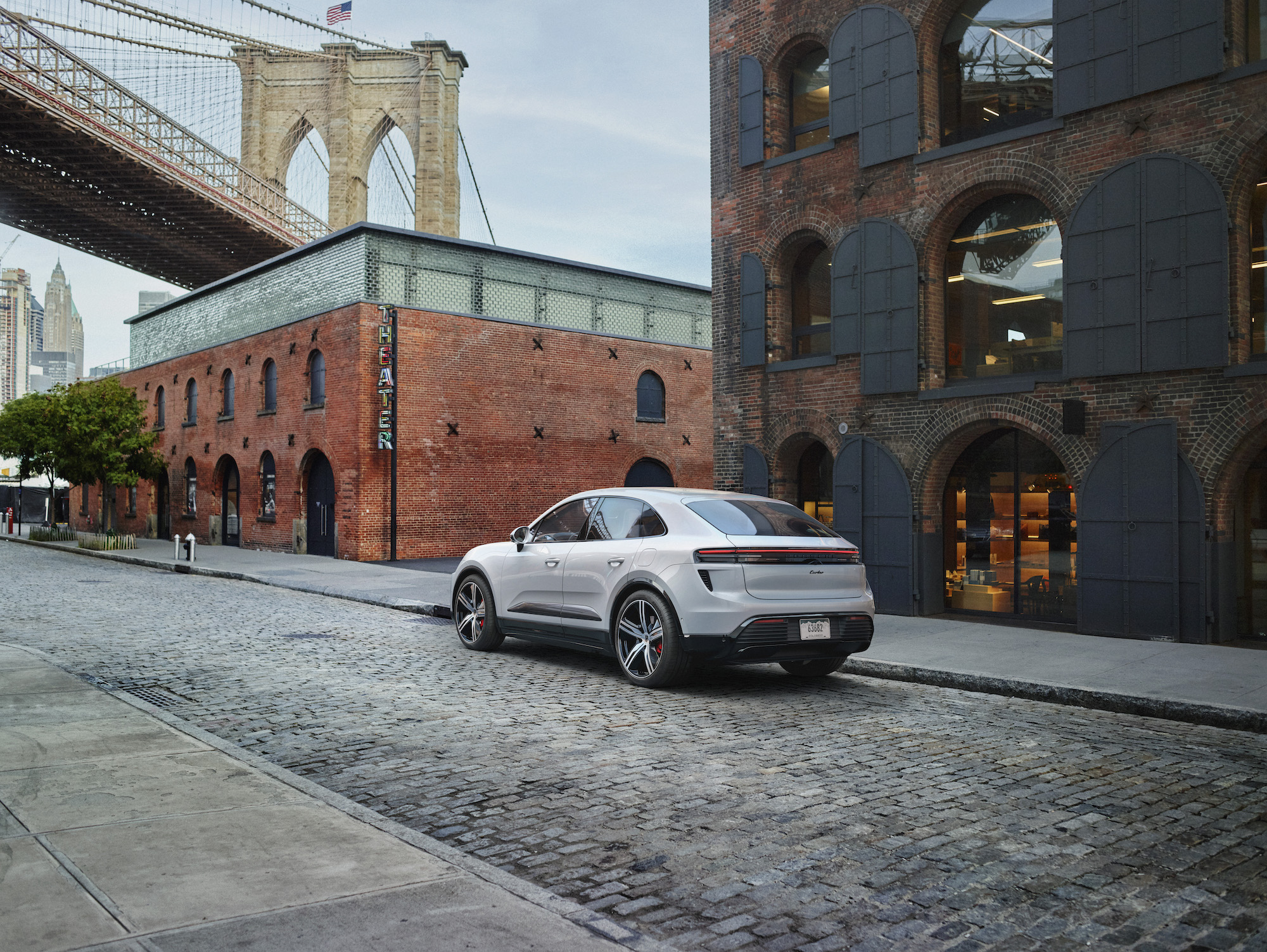On Thursday, Porsche took the wraps off the Macan EV, a long-delayed project that will test whether consumers still have the drive to spring for an electric vehicle that costs more than $78,000.
The reveal comes at a pivotal time for Porsche — and many other automakers. Demand for expensive EVs has waned in recent months, prompting some automakers to turn back toward hybrid vehicles and curb costly battery factory plans.
The Porsche Macan EV provides the ideal testbed for gauging consumer sentiment — which will play out when the company begins deliveries of the all-electric compact SUV in the second half of the year. The Porsche Macan EV will not only go up against the best-selling gas-powered Macan, but it will also be more expensive.
The Porsche Macan EV will be offered in two variants: the Macan 4 and Macan Turbo (yes, Porsche continues to hold on to to its heritage badging in spite of this being an EV). The Macan 4 starts at $78,800 and the Macan Turbo starts at $105,300, prices that don’t include the $1,650 delivery, processing and handling fee. Meanwhile, the gas-powered Macan starts at $62,550 and tops out at $88,450 for its most expensive trim.
Porsche president and CEO North America Timo Resch doesn’t see a conflict and instead sees an opportunity to give customers more choice.
“Ultimately, it’s a customer’s choice,” Resch told TechCrunch in a recent interview, adding that early on in the process, Porsche customers think through their driving style and habits. “For what I want to do, is it more on the internal combustion engine side or am I on the battery electric side? And then this pretty much decides what direction to go. I think this is the way forward, and for Porsche, there couldn’t be any other direction because we always try to make the customer and their decision and their desire for our product, our highest priority.”
Nuts and bolts
Porsche has trickled out specs on the future Macan EV since 2019, when the company first announced it would turn its best-selling U.S. vehicle into an electric vehicle. It even let TechCrunch and other media drive the prototype last year. With the official launch, Porsche released more details about the two Macan EVs with the exception of battery range. The company said EPA range figures will be available closer to delivery date.
The Macan EV is Porsche’s second all-electric vehicle and the first to use the newly developed Premium Platform Electric (or PPE), which was developed in collaboration with Audi AG and is designed for the manufacturer to easily adjust wheelbase, track width and ground clearance.
The automaker is selling two versions of the all-electric SUV, both of which are equipped with electric motors on the front and rear axles, which draw energy from a 100-kilowatt-hour lithium-ion battery pack located in the underbody of the vehicle.
First up is the Macan 4, an all-electric SUV equipped with a powertrain that can produce up to 402 horsepower and 479 pound-feet or torque. The Macan 4 can accelerate from a standstill to 60 miles per hour in 4.9 seconds and a top track speed of 136 mph.
As the name suggests, the more powerful Macan Turbo can generate up to 630 hp and a maximum 833 lb-ft of torque. That also translates to faster acceleration; the Macan Turbo can travel from 0 to 60 mph in 3.1 seconds and a top track speed of 161 mph.
It’s worth noting that the Porsche Macan EV is the first Macan to feature rear-axle steering. As we noted in our test drive last year, the rear wheels turn up to five degrees opposite the front wheels when driving at speeds of about 50 mph or slower, which lets the driver feel the car as it rotates through turns.
Android software
Another notable feature is the software, namely that is not the software 1.2 platform that has been under development — and repeatedly delayed — by VW Group’s Cariad software unit. The software 1.2 was being created specifically for the Porsche Macan EV and the Audi Q6 E-Tron and was originally scheduled for completion in 2022. Cariad pushed the release date to the end of 2023 to be ready for 2024 VW models when Peter Bosch took over in May. Now it looks like the software 1.2 platform won’t be in cars until at least 2025.
That left Porsche hanging, and ultimately the automaker turned to Google. The Porsche Macan EV’s infotainment system is based on Android Automotive OS, which is modeled after Google’s open source mobile operating system that runs on Linux. This shouldn’t be confused with Android Auto, an app that runs on the user’s phone and wirelessly communicates with and projects navigation, parking, media and messaging to the vehicle’s infotainment system, or Google built-in, which is powered by its Android Automotive operating system and integrates Google services directly into the vehicle.
Android Automotive OS essentially allows Porsche to build out and integrate its own products and services such as navigation and apps. It also supports Apple CarPlay, which allows owners of Apple phones to project onto the infotainment screen.
“The technology advantages are very obvious and can be felt by our customers immediately when they get into the car,” Timo said, who didn’t provide any information on the 1.2 software delay or if Porsche would ever adopt it. “When they get into the Macan electric, it looks like a very fast, very intuitive Porsche user interface because in terms of the look and feel, the icons, everything else, it is familiar to the Porsche look and feel.”

